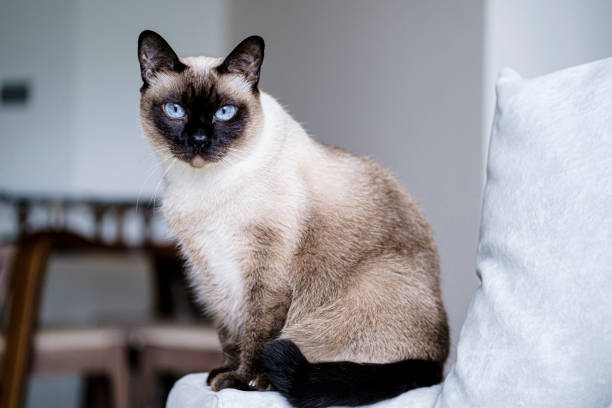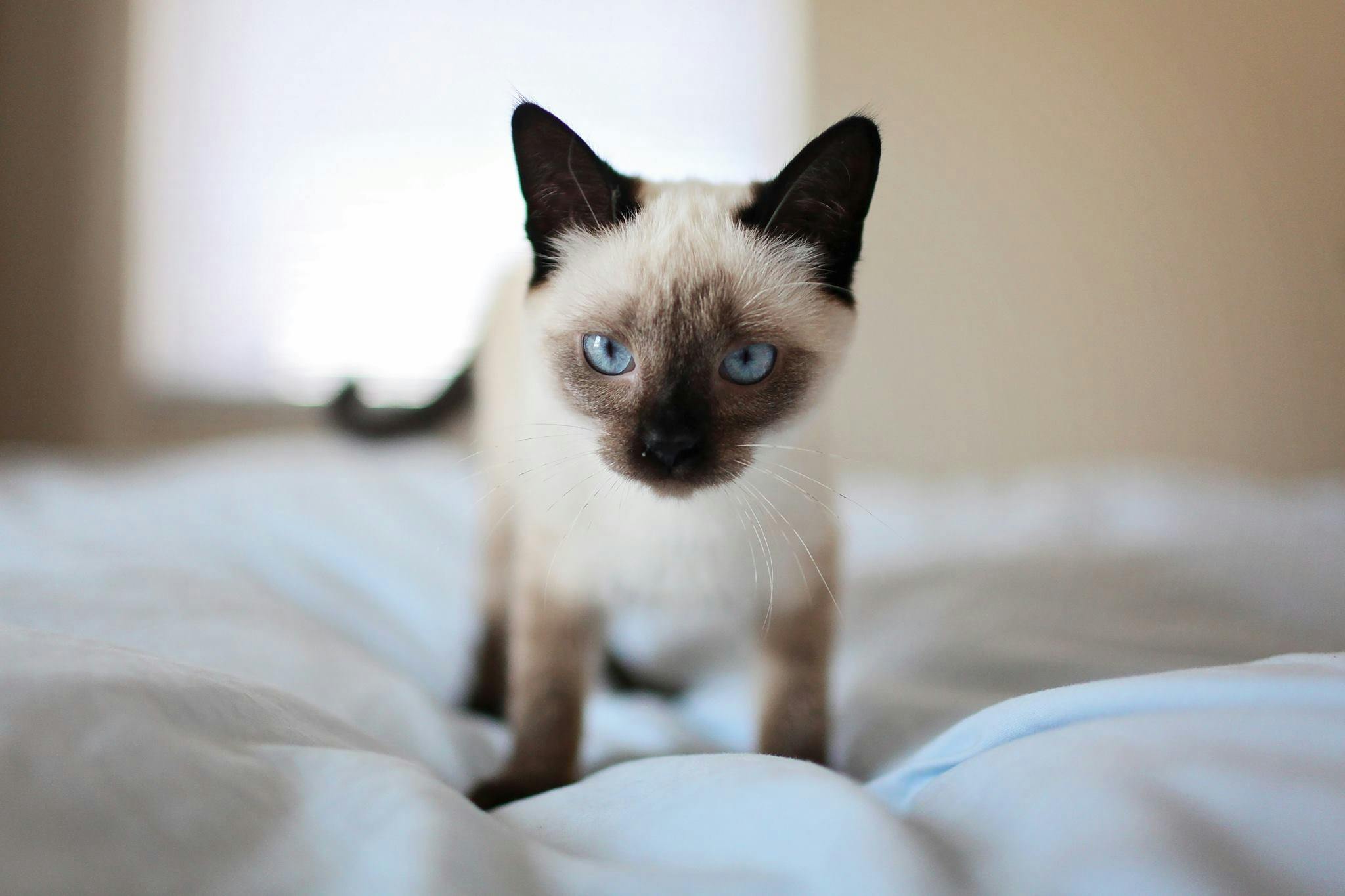Siamese Cat

History:
The Siamese cat is one of the oldest and most recognisable domestic cat breeds, originating from Thailand (formerly Siam), where they were revered as sacred temple cats. They were first officially introduced to the Western world in the late 19th century when they were gifted to British and American dignitaries. Siamese cats gained popularity for their exotic appearance and outgoing personalities. Traditional Siamese cats had a more rounded body and apple-shaped head, but the modern breed has evolved into a sleeker, more angular form. Known for their striking blue eyes, pointed colouration, and vocal nature, Siamese cats have become beloved for their intelligence, loyalty, and engaging personalities, often forming deep bonds with their human companions.
Size: Medium-sized cat
Height: 20–25 cm
Weight: 3.5–5.5 kg
Life Expectancy: 12 to 15 years

Breed Appearance:
Siamese cats are medium-sized with a slender, fine-boned frame, long legs, and a graceful, athletic build. They have a short, close-lying coat that is soft and glossy, traditionally seen in four main colour points—seal, blue, chocolate, and lilac—though many variations now exist. The breed's hallmark is its pointed pattern: a light-colored body with darker colour on the ears, face, paws, and tail. Siamese cats have a distinctive wedge-shaped head, long straight nose, and large, wide-set ears that enhance their alert expression. Their almond-shaped, vivid blue eyes are a defining feature and convey intelligence and curiosity. Despite their delicate appearance, Siamese cats are muscular, agile, and elegant in motion, with a graceful yet playful demeanour.
Health & Care:
Siamese cats are generally healthy but may be predisposed to certain hereditary conditions such as dental issues, respiratory problems, progressive retinal atrophy (PRA), and heart disease. Regular veterinary checkups, dental care, and a nutritious diet help manage their long-term health. Their short coat is low-maintenance, requiring minimal grooming—weekly brushing is usually sufficient to keep it shiny and remove loose hair. Maintaining a stimulating and interactive environment is essential for their emotional well-being, as Siamese cats are very social and mentally active.

Living Conditions:
Siamese cats adapt well to a variety of living environments, from small apartments to large homes, provided they have adequate companionship and engagement. They thrive in households where someone is usually present or where they have other pets to interact with. Siamese cats are very vocal and expressive, and they prefer warm, cosy resting spots, high perches, and interactive toys. They bond closely with their humans and do not tolerate being ignored or isolated. Their sociable and affectionate disposition makes them well-suited for families, couples, or individuals who enjoy a constant feline presence.
Grooming:
Thanks to their short, sleek coat, Siamese cats are low-maintenance when it comes to grooming. Weekly brushing is typically enough to keep their coat looking smooth and reduce shedding. They shed moderately and may benefit from more frequent brushing during seasonal changes. Routine care should include regular dental hygiene to prevent oral health issues, as well as nail trimming and occasional ear cleaning. Bathing is rarely needed unless the cat becomes particularly dirty. With consistent, basic care, Siamese cats remain clean, neat, and well-groomed.

Advantages:
-
Siamese cats are affectionate, loyal, and deeply bonded to their humans, offering companionship and emotional closeness that many owners cherish.
-
Their sleek, short coat is easy to maintain, requiring minimal grooming effort, which suits busy households.
-
Intelligent and interactive, they are highly trainable and thrive on engaging activities such as tricks, puzzles, and social play.
-
Social and outgoing, they typically do well in households with children, other cats, or friendly dogs, making them great additions to multi-pet homes.
-
Their vocal and expressive nature creates a lively and communicative relationship, making them captivating companions for those who enjoy a talkative pet.
Disadvantages:
-
Siamese cats have a high need for attention and may develop separation anxiety or behavioural problems if left alone for long periods.
-
Their frequent vocalisations can be loud and persistent, which may not be ideal for quiet households or noise-sensitive individuals.
-
Their active minds and bodies require substantial stimulation—without enough play or interaction, they can become bored and destructive.
-
Some Siamese cats may be prone to hereditary health conditions, particularly related to the eyes, heart, or respiratory system, which require regular monitoring and care.

